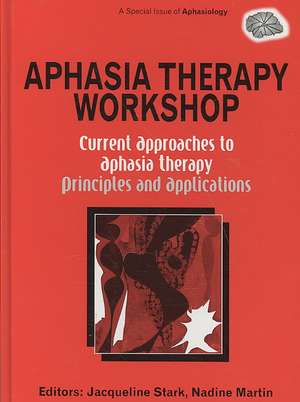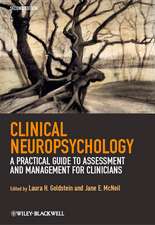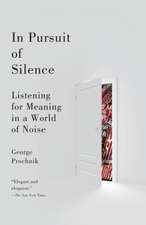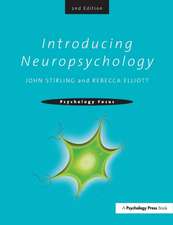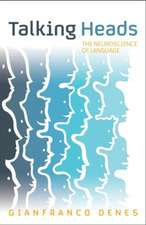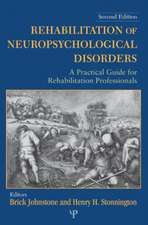Aphasia Therapy Workshop: Current Approaches to Aphasia Therapy - Principles and Applications: A Special Issue of Aphasiology: Special Issues of Aphasiology
Editat de Jacqueline Ann Stark, Ruth Fink, Nadine Martinen Limba Engleză Hardback – 22 dec 2005
1) Functional communication: Social models and psychosocial approaches
2) Technological advances : Computer - based approaches
3) Aphasia therapy duration: best when intensive and prolonged?
4) Cognitive neuropsychological approaches
5) (Psycho-) Linguistic approaches
6) Beyond language – cognitive aspects of language therapy
The papers reflect the variety of approaches to treatment of aphasia and provide the reader with an update on the most current advances in our theories and practice of aphasia rehabilitation.
| Toate formatele și edițiile | Preț | Express |
|---|---|---|
| Paperback (1) | 146.21 lei 6-8 săpt. | |
| Taylor & Francis – 25 iun 2015 | 146.21 lei 6-8 săpt. | |
| Hardback (1) | 236.25 lei 6-8 săpt. | |
| Taylor & Francis – 22 dec 2005 | 236.25 lei 6-8 săpt. |
Din seria Special Issues of Aphasiology
- 17%
 Preț: 146.21 lei
Preț: 146.21 lei - 13%
 Preț: 293.60 lei
Preț: 293.60 lei -
 Preț: 311.69 lei
Preț: 311.69 lei - 17%
 Preț: 556.65 lei
Preț: 556.65 lei - 21%
 Preț: 255.16 lei
Preț: 255.16 lei - 18%
 Preț: 211.02 lei
Preț: 211.02 lei - 17%
 Preț: 220.48 lei
Preț: 220.48 lei -
 Preț: 287.68 lei
Preț: 287.68 lei - 23%
 Preț: 384.67 lei
Preț: 384.67 lei - 17%
 Preț: 284.55 lei
Preț: 284.55 lei - 18%
 Preț: 810.92 lei
Preț: 810.92 lei - 21%
 Preț: 364.99 lei
Preț: 364.99 lei - 22%
 Preț: 429.16 lei
Preț: 429.16 lei - 13%
 Preț: 301.21 lei
Preț: 301.21 lei - 13%
 Preț: 296.68 lei
Preț: 296.68 lei
Preț: 236.25 lei
Preț vechi: 281.98 lei
-16% Nou
Puncte Express: 354
Preț estimativ în valută:
45.21€ • 47.14$ • 37.58£
45.21€ • 47.14$ • 37.58£
Carte tipărită la comandă
Livrare economică 21 martie-04 aprilie
Preluare comenzi: 021 569.72.76
Specificații
ISBN-13: 9781841698007
ISBN-10: 1841698008
Pagini: 194
Dimensiuni: 167 x 246 x 14 mm
Greutate: 0.52 kg
Ediția:1
Editura: Taylor & Francis
Colecția Psychology Press
Seria Special Issues of Aphasiology
Locul publicării:Oxford, United Kingdom
ISBN-10: 1841698008
Pagini: 194
Dimensiuni: 167 x 246 x 14 mm
Greutate: 0.52 kg
Ediția:1
Editura: Taylor & Francis
Colecția Psychology Press
Seria Special Issues of Aphasiology
Locul publicării:Oxford, United Kingdom
Cuprins
J. Stark, N. Martin, R. Fink, Current Approaches to Aphasia Therapy: Principles and Applications. S. Byng, J.F. Duchan, Social Model Philosophies and Principles: Their Applications to Therapies for Aphasia. L. Worrall, T. Rose, T. Howe, A. Brennan, J. Egan, D. Oxenham, K. McKenna, Access to Written Information for People with Aphasia. M.C. Linebarger, M.F. Schwartz, AAC for Hypothesis Testing and Treatment of Aphasic Language Production: Lessons from a 'Processing Prosthesis'. R. Fink, A. Brecher, P. Sobel, M.F. Schwartz, Computer-assisted Treatment of Word Retrieval Deficits in Aphasia. G.A. Stefanatos, A. Gershkoff, S. Madigan, Computer-mediated Tools for the Investigation and Rehabilitation of Auditory and Phonological Processing in Aphasia. J.J. Hinckley, T.H. Carr, Comparing the Outcomes of Intensive and Non-intensive Context-based Aphasia Treatment. A. Basso, How Intensive-prolonged should an Intensive-prolonged Treatment be? A.E. Hillis, J. Heidler, Contributions and Limitations of "The Cognitive Neuropsychological Approach" to Treatment: Illustrations from Studies of Reading and Spelling Therapy. B. Rapp, The Relationship between Treatment Outcomes and the Underlying Cognitive Deficit: Evidence from the Remediation of Acquired Dysgraphia. J. Marshall, D. Cairns, Therapy for Sentence Processing Problems in Aphasia: Working on Thinking for Speaking. C.K. Thompson, L.P. Shapiro, Treating Agrammatic Aphasia within a Linguistic Framework: Treatment of Underlying Forms. N. Friedmann, Degrees of Severity and Recovery in Agrammatism: Climbing up the Syntactic Tree. M. Nicholas, M.P. Sinotte, N. H-Estabrooks, Using a Computer to Communicate: Effect of Executive Function Impairments in People with Severe Aphasia. G. Ramsburger, Achieving Conversational Success in Aphasia by Focusing on Nonlinguistic Cognitive Skills; a Potentially Promising New Approach. J.A. Stark, Analysing the Language Therapy Process - The Implicit Role of Learning and Memory.
Notă biografică
Jacqueline Ann Stark, Ruth Fink, Nadine Martin
Descriere
The Aphasia Therapy Workshop brings together leading experts in the field of aphasia to address current approaches to aphasia rehabilitation. The papers reflect the variety of approaches to treatment of aphasia and provide the reader with an update on the most current advances in our theories and practice of aphasia rehabilitation.
